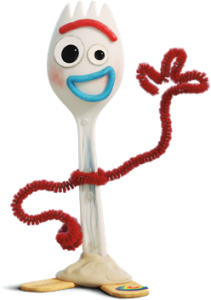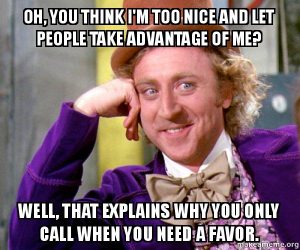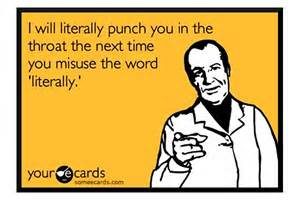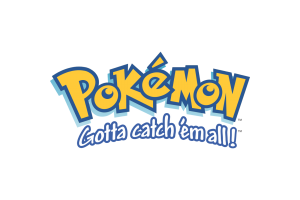one of the least viewed videos on my largely ignored youtube channel is learn from litter, a video produced a few months ago that encourages english language learners to add to their vocabulary by paying attention to the garbage they see on the streets. litter, garbage and trash are all synonyms.
fun english practice richyrocks english on youtube
richyrocks english on youtube
while there has been little interest in this method, richyrocks english aint no quitter. in addition, forky, a new character being introduced in toy story 4 this summer might persuade global audiences to have a more open mind about the positive role litter can play in our lives.
forky from toy story 4 is made of litter
so let’s try again…
at :25, the video presents various queries (question) that i receive as an english coach. these queries lead to (provoke) a list of good practices for learning english that lasts until 1:55.
at :55, the advice is
just make sure you’re taking advantage of every opportunity, because english is all around u.
this is the first of many uses of take advantage (of) which means exploit, utilize.
take advantage of can be a positive action as it is in learn from litter or a negative action as it is in this meme.
the idea continues at 1:05,
if u live in mexico, u walk out your door and english will literally hit u right in the forehead.
there is a widely criticized tendency nowadays to misuse literally. it is used for emphasis, but its precise meaning is in fact precisely or exactly. a piece of garbage might literally hit u in the forehead (top part of the face) but most of the other suggestions for practicing english will not literally hit u in the forehead.
btw–there’s no connection between litter and literal that im aware of; other than alliteration
![]()
i will absolutely NOT punch u in the throat if u misuse literally. somebody else might though.
at 1:30, listen for the observation
maybe u like going shopping
there are many examples of activities in english that are expressed with go + ing verb. most of them are active or outdoor activities such as go camping, go surfing, go dancing and go fishing, but the most common is go shopping.

when u go shopping, there is literally english practice in every aisle!
the mention of shopping starts an explanation about why brands and their taglines are good english practice. at 1:40 taglines are described as
little one-liners that’ll tell u why that product is so damn good, to tell u why it’s so damn special, to tell u why u gotta have it, to tell u why u need to buy it, man.
one-liner is often used to describe a short (one sentence), humorous reply or joke. in this case, it refers to the actual length of taglines, which are usually not longer than one line. damn is used to emphasize good and special. u gotta is a reduction of you’ve got to which is a contraction of you have got to, the have got structure, which has the same meaning as have.
pokémon’s tagline is gotta catch ’em all
like learn from litter explains at 1:53, u have no obligation to buy
![]()
well u might not buy that product, but they just gave u a free english lesson, buddy
might is a modal auxiliary verb that means maybe.
while the words brands use to promote themselves are very useful as source of vocabulary for english students, unfortunately, to spread (distribute) the message, we end up with a lot of branded litter.
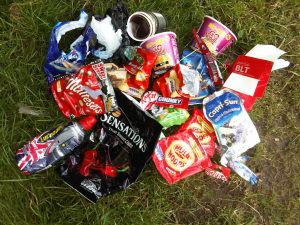
there are lessons in the litter (litteraction.org.uk)
this is the idea at 1:53 in the video where u can hear the question
u know what else we got a lot of?
else means in addition. we got is another reduction of the have got structure. the answer to the question, of course, is garbage.
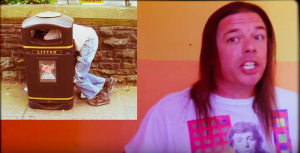
we got a lot of litter
the comment at 2:20 is looking for a silver lining (something good inside the bad)
u can even learn english from a piece of garbage.
even emphasizes the idea that english practice is all around u, including in the trash.
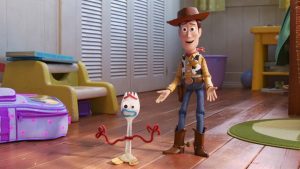
woody tells forky he’s a toy, but forky doesn’t even care.
the inspiration for learn from litter is given at 2:30
peripherally i happened to notice this used detergent package lying on the street right outside the building where i was going to give the class.
happen indicates that seeing the neat and tidy package was chance, luck. the gerund of lie (lying) means the detergent package was “resting” on the street. peripherally means out of the side of your eye, not directly. in this video from rocky ii, rocky’s manager mickey tells him a rematch with apollo creed is a terrible idea. at 1:30 he tests rocky’s peripheral vision.
a graphic at 2:55 says that neat and tidy mean clean, orderly. which supports the observation at 2:50 that
garbage labeled neat and tidy? oh, it’s ironic!
there is more clarification on the motivation for learn from litter at 2:58
what i’m really getting at here….anything can be your english practice.
get at means imply, suggest.
it’s as simple as that can be heard at 3:25 and again at 4:20. it is a phrase that is commonly used in advertising to promote how easy it is to use a product or service. as simple as is an as adjective as example.
i tell u what, is used at 4:15 to emphasize that branded litter can be a free english lesson. it’s a phrase that is associated with the character hank hill from the animated series king of the hill. that’s why there’s a video of him saying it for an hour on youtube.
and the final piece of advice in learn from litter is to
keep your eye on the litter/garbage/trash
keep your eye on means watch, pay attention to. it’s used famously in the first line of the doors‘ song roadhouse blues.
keep your eyes on the road, your hands upon the wheel
is there anything else u would like to ask about the vocabulary or structures used in learn from litter? post them under leave a reply
